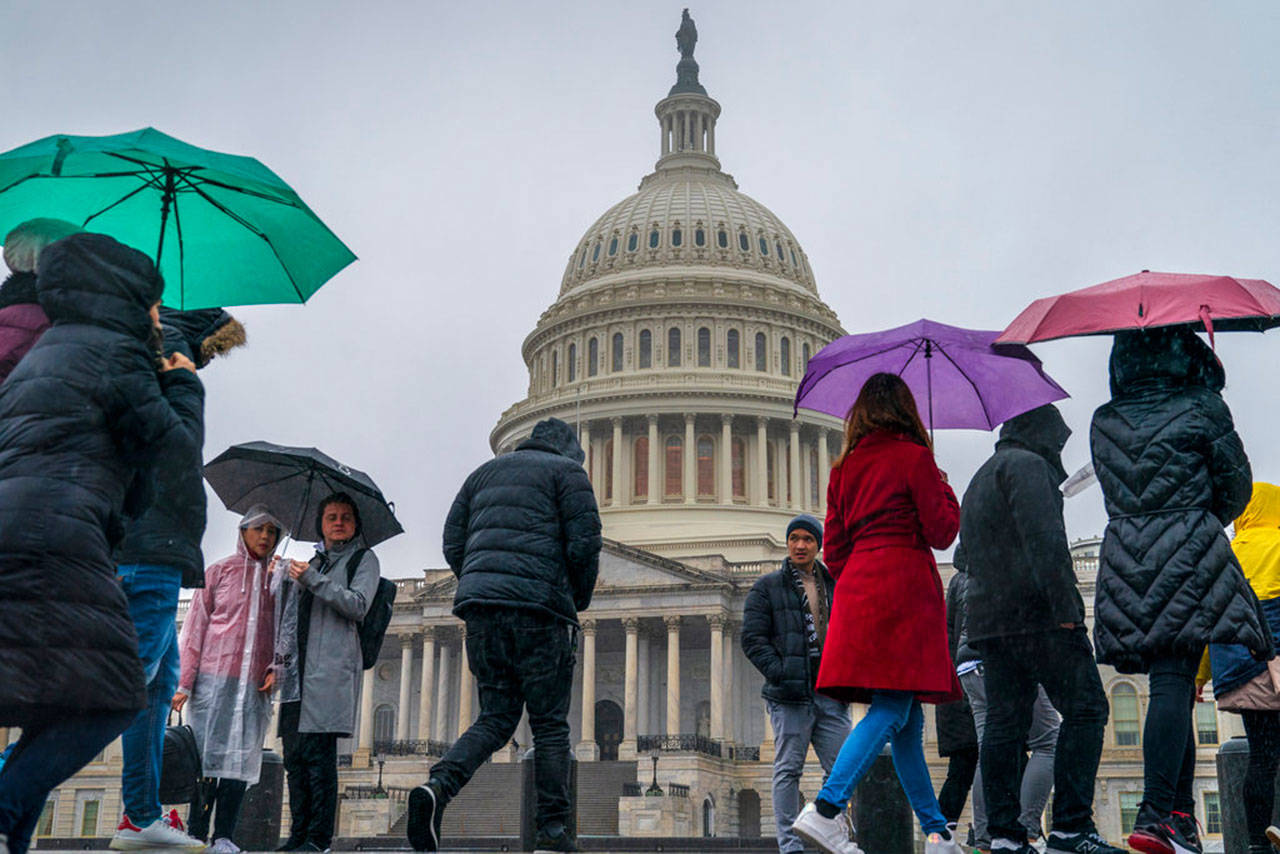By The Herald Editorial Board
New Year’s resolutions are easy to make, but harder to keep. They’re even simpler to make when made for others, even though there’s less control in outcomes.
But that won’t stop us from suggesting resolutions for which we’d like to see commitments made by a select few.
So, be it resolved:
For the state Legislature: More deliberation.
With majorities in both House and Senate this year, Democrats in the Legislature broke logjams on a number of good bills and did it all within the regular session. But the pace of work and the drive to wrap up its work in 60 days led to haste and wasted effort in at least two instances.
In response to Initiative 940 — which sought to change state law that had required prosecutors prove a police officer acted with malice to find guilt in an officer-involved shooting — lawmakers worked with the initiative’s backers and with law enforcement groups on a collaboration that improved the language and added needed provisions. The problem came in how the legislation was enacted; rather than follow the state constitution and place both I-940 and the compromise bill before voters, lawmakers invented a path not allowed by the constitution and made the bill law.
A lawsuit was filed and the state Supreme Court ruled the bill unconstitutional, putting I-940 on the ballot. The good news was that following passage of I-940, the same coalition that worked out the improved language ahs committed to amending I-940 in the 2019 session. The Legislature likely could have avoided the additional effort by following the process outlined in state law, rather than assuming — as one lawmaker asserted — that a “worthy endeavor” took “precedence over what the Constitution says about initiatives.”
The Legislature’s other hasty blunder was, at least, a bipartisan one. In response to a lawsuit by media members throughout the state, lawmakers took up and passed a bill that, with a few concessions, largely exempted themselves from the provisions of the state Public Records Act, concealing emails and other documents from the public’s view. Following a campaign by newspaper editorial boards and other media, complaints flooded the governor’s office with demands for a veto.
With the bill defeated, lawmakers and representatives of local government, the media and advocates for government transparency met over this year’s final months to develop guidelines for the Legislature to consider as it returns to the issue in the coming session; which was the course lawmakers could have taken at the start of this year, saving themselves some grief and the ire of the taxpayers to whom the records rightfully belong.
The Legislature, as it did this year, has a lot on its plate for the coming session. Along with passing operating and capital budgets, it has unfinished business to complete in funding K-12 education, fixing the state’s mental health system and addressing environmental concerns, in particular, dwindling runs of chinook salmon and the ailing population of orca whales that live in state waters.
Even if it takes a couple of special sessions to do it, the Legislature — Democrats and Republicans — can build up the public’s reserves of trust through full deliberation and consideration of these and other issues. In other words: Slow down and show your work.
For Congress: Much more action.
It’s in the interests of Democrats and Republicans in the House and Senate to show some resolve in the coming year and work for solutions. Bipartisan action is not just an expectation — with Republicans maintaining control of the Senate and Democrats leading the way in the House — it’s now mandated by a divided Congress and the voters.
Democrats in the House need to prove that voters’ trust in November was warranted. Republicans can regain the same trust by working to improve the lot of all Americans, not just the wealthiest.
Republicans are particularly on the hook to make sure that at least the major provisions of the Affordable Care Act — in particular protection for the millions of Americans with pre-existing conditions — are upheld or legislatively restored. A federal judge recently found the ACA unconstitutional, thanks to a lawsuit brought by attorneys general and governors from 19 Republican-led states. Republicans, between 2011 and 2017, made no fewer than 70 unsuccessful attempts to repeal the ACA, during which Obamacare and its provisions slowly gained the support of a majority of Americans. What the GOP broke, it now owns.
The outcome of the judge’s ruling is uncertain, assuming it is reviewed by the U.S. Supreme Court, but Republicans now need to begin work with Democrats to ensure its protections, including coverage for more Americans, continue.
Democrats, in turn, will be expected to strike a balance between effective legislative action and the check-and-balance duty for oversight of the Trump administration, which voters appear to have mandated. Democrats in the House should continue to wait patiently for the conclusion of the investigation by Special Counsel Robert Mueller. So far, most have wisely avoided talk of impeachment of the president. Assuming Mueller’s report is released to Congress and the public, it should be carefully reviewed before any House action.
There’s plenty of work that has been left undone for too many years. Frankly, assigning blame at this point is a waste of time. Congress must address immigration and border security, infrastructure, a tax system that works for middle-class Americans, prescription drug prices and other health care concerns, rising deficits and the national debt, trade issues and much more.
Oh, and it needs to find a way to end the federal government shutdown.
For President Trump: If he just drops his Twitter account, we’ll call that good for the year.
Talk to us
> Give us your news tips.
> Send us a letter to the editor.
> More Herald contact information.

























